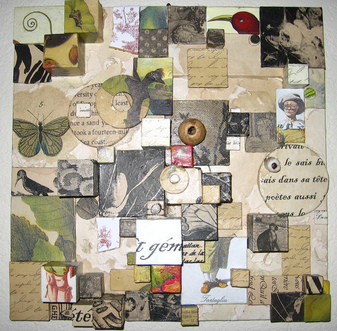|
I've noticed a recurring theme in church recently coming from our pastors: all of life is a sacrament. Hearing this blesses like fresh water. And it reaffirms one of my greatest takeaways from my studies at Regent College: a sacramental view of life.
If you have a church background, you were taught that there are either seven sacraments (Catholic) or two (Protestant). These are sacraments the church has formalized, and I'm thankful for them. But deeply imbedded in Christian orthodoxy, I believe, is the belief that all life is sacred (belonging to God) and therefore should be lived sacramentally. So what does this lofty statement mean? I understand "sacrament" as a thing or an event that helps us in two ways. First, sacraments help us understand God and how he engages with us and the world. If God made the world, it reveals something of himself. If God made us in his likeness, we can learn something of God from looking at ourselves (both what he is and what he is not). Just as viewing an artist's work tells us about the artists, so studying the world tells us something about the Creator. Secondly, a sacrament invites us to participate in God's life and death. If you've been reading my blog posts, you will have noticed various examples how I view all of life as a sacrament: a tree in the back yard, morning sunlight in the park, a song, a book, pigeons mating, things kids say, smart phones, and even mass killings. But wait, you say, how on earth can you see bad things as sacraments? Are you some kind of sadistic nut job? Surely this is heresy. But let's not forget the church's highest sacrament, The Lords Supper, celebrates the worst of all events, the death of Christ, which is also the best of all events. Within the bad events of our world, like mass killings, is Jesus' own death because God suffers with and for the victims of these tragedies and also the perpetrators. These horrible events should remind us that God does not divorce himself from suffering and death but rather he absorbs in his own suffering the evil of the world. And, these events call us to participate in this same suffering by our compassion, our outrage, and also our confession. Do these kinds events bring us to our knees in grief over our own acts of hatred? Do they cause us to combat evil? Do they move us to care for the suffering? Yes, even bad things can be sacraments which draw us to participate in the life of God. Some church liturgies use the phrase, "the gifts of God for the people of God," when serving the bread and wine for The Lord's Supper. Essentially, this is where sacramental living starts: a sacrament is a gift by which we commune with God. We receive the gift of God in his son -- in his life and his death. Jesus' life among us affirms Gods total involvement in our world. He's in, with both feet and with every fiber of his being -- loving it, celebrating it, struggling with it, dying with it, and resurrecting it. His sacrament is an invitation, every day and in all things, to participate in his life.
0 Comments
Leave a Reply. |
Archives
January 2024
Categories |

 RSS Feed
RSS Feed